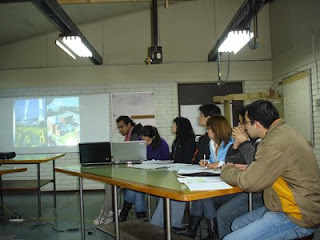
One of the most important skills a person can posses in my estimation is the ability to solve (resolver) problems. In many ways, life is full of problems (lleno de problemas) and working to find a solution is a skill that we all must develop and in reality, implement daily. We have problems such as the need and availability of clean water (agua limpio), environmental impacts of traffic and pollution, and even the problem of choosing the best and most effective toothpaste for our home. Each day, we encounter problems in the real world that require each one of us to think (pensar), to analyze (analizar), and to work (trabajar) to solve in the most effective manner we can.
As a professor, I often use an approach to teaching and learning that is called Problem-Based Learning or PBL (Aprendizaje Basado en Problemas o ABP). PBL is an inquiry-based approach that can be defined as both a curriculum and a process. The curriculum consists of carefully selected and designed problems that engage (enfocar) the learner in the process of acquiring critical knowledge, developing proficiency in problem solving, engaging in self-directed learning, and participating in collaborative teams. PBL approaches give students the ability to retain facts though critical thinking (pensamiento critico) by working through problems logically and making connections to the real world. PBL features open-ended and cooperative activities that deal with real world issues and scenarios.
Recently, I sat in on a class here at la UMCE where students proposed solutions (las soluciones) with a scientific emphasis to the goal of creating a new city. The scenario was modeled on a rela world event of a volcano erupting near the city of Chaitén that happened in May of 2008, and caussed the evacuation of town (un pueblo) of approximately 4200 residents. The students did a great job defining the problems and proposing their own researched and well supported solutions to the problem of creating a new city (una ciudad nueva). The students posed questions, analyzed the issues, presented their findings and defended their positions with confidence and clarity.
I firmly believe that the ability to solve problems is a skill (una habilidad) that demonstrates critical thinking and emphasizes the abilities to analyze, synthesize and evaluate situations. In many ways, it is higher-order thinking. My father-in-law has a saying that we need more problem solvers than problem identifiers, and I wholeheartedly agree with him. Too often people see a problem and look to someone else to solve it or they just pass it along to another. Yet, in Santiago, Chile, this day, the indication (la indicación) from these students is that they are posed to be problem solvers today and this is good news for the future (el futuro).



No comments:
Post a Comment